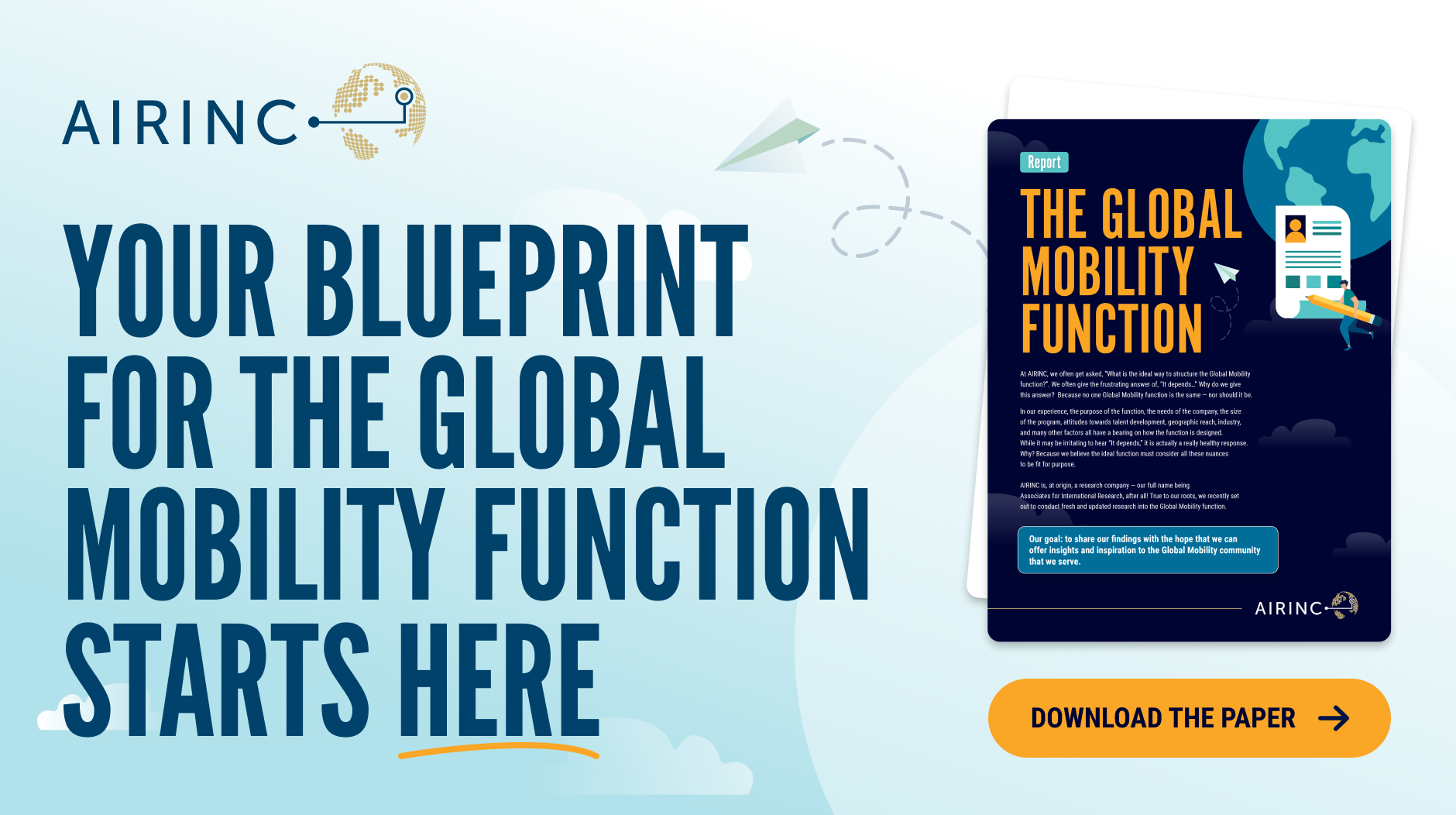How do you support developmental assignments?
In today’s mobility climate, retaining talent and fostering a positive employee experience is important, but even more so in developmental assignments; should the employee leave the organization shortly after repatriation, the business would receive no return on their investment. Mobility can support their developing talent by understanding that young professionals are in a different stage of their lives than mid-career professionals, and they expect and require different support from their peers.
To better understand the wants and needs of young professionals, we held a discussion with AIRINC employees under 35 to share our personal values and professional perspectives. In this series, we’ll be posting some insights on how Mobility can tailor their policies and practices to better support the talent that the business invests in. This week, we’ll look into relocation support.
In addition to personal support, traditional expats and early-career professionals require different relocation support as well. AIRINC team members agreed that they would not want to ship their household goods overseas, or even want to store them in the home location. They also shared that a typical home leave benefit of travelling to their home location would not be too appealing. Instead, they placed the most value on having flexibility to explore their assignment location.
Organizations can offer flexibility in many ways, such as by offering additional paid time off, or having a financial stipend to travel. Since some traditional benefits may not be needed by younger talent, Mobility can reallocate assignment budgets to better suit the needs of the employees. By considering traditional expat benefits through the lens of relevance to an under-35’s lifestyle, Mobility can create packages that enhance the employee experience.
If you have any questions, please contact Grace Kernohan. You may also download the full whitepaper here.



%20(93)%20(1).png)



